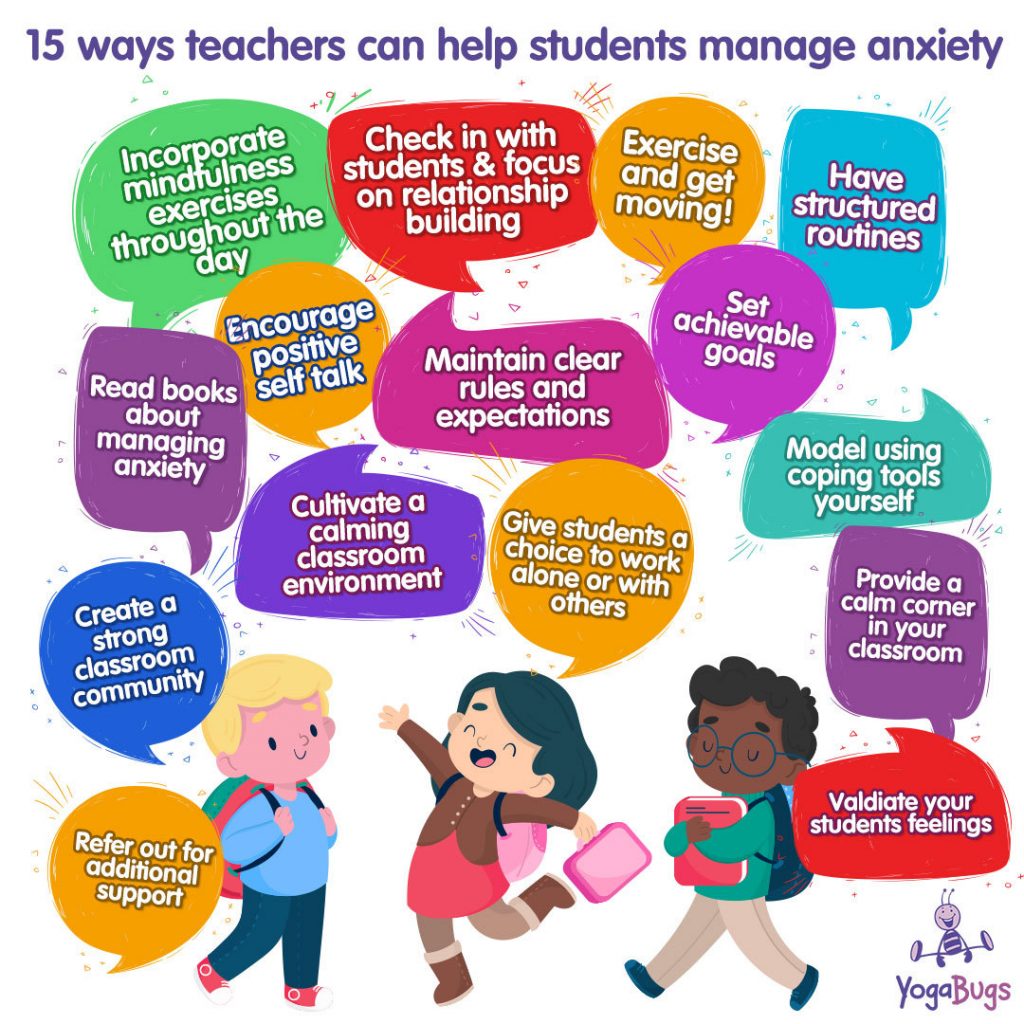In the dynamic landscape of education, teachers play a pivotal role not only in imparting knowledge but also in shaping the emotional well-being of their pupils. Recognising and addressing anxiety among pupils is crucial for fostering a positive learning environment. In this blog, we’ll explore effective ways teachers can support and guide pupils dealing with anxiety.

- Create a Safe and Inclusive Space: Start by establishing a classroom environment where pupils feel safe expressing their thoughts and emotions. Encourage open communication, making it clear that it’s okay to discuss feelings of anxiety without judgment.
- Build Strong Teacher-Student Relationships: Foster strong connections with your pupils. Take time to understand their individual needs, strengths, and challenges. A supportive teacher-student relationship can be a powerful antidote to anxiety.
- Implement Mindfulness Techniques: Incorporate mindfulness practices into daily routines. Simple breathing exercises, short meditation sessions, or moments of quiet reflection can help pupils manage stress and cultivate a sense of calm. YogaBugs has breathing exercises and guided visualisations available on our YouTube channel, click here.
- Provide Clear Expectations: Anxiety can often stem from uncertainty. Establish clear expectations regarding assignments, assessments, and classroom behavior. Predictability in the learning environment can alleviate stress for pupils.
- Encourage Peer Support: Foster a sense of community within the classroom. Encourage pupils to support each other. Group activities, collaborative projects, and peer mentoring can create a supportive network that helps alleviate feelings of isolation.
- Offer Flexible Learning Options: Recognise that every student learns differently. Provide alternative methods for expressing understanding and participating in class. This flexibility helps reduce anxiety related to academic performance.
- Teach Stress-Management Strategies: Equip pupils with practical stress-management techniques. Teach them how to identify stressors, develop coping mechanisms, and seek support when needed. These skills are invaluable not only in school but also in life. YogaBugs has breathing exercises and guided visualisations available on our YouTube channel, click here.
- Promote a Growth Mindset: Foster a growth mindset by emphasising the value of effort, resilience, and learning from mistakes. This shift in perspective can help pupils approach challenges with a positive attitude, reducing anxiety about perfection.
- Establish a Routine: Structure and routine provide a sense of security for students. Consistent schedules for lessons, breaks, and activities can create a stable learning environment that promotes emotional well-being.
- Collaborate with Support Services: Work closely with school & local support services. Collaborative efforts ensure that pupils receive comprehensive assistance tailored to their individual needs.
As educators, our impact extends beyond academic achievements to the emotional and mental well-being of our pupils. By incorporating these strategies into our teaching practices, we can create a nurturing and supportive learning environment where students feel empowered to overcome anxiety and thrive both academically and personally. Together, let’s build a future where every pupil can embrace learning with confidence and enthusiasm.
YogaBugs are specialists in mindfulness in schools, if you would like to find out more click here.
#AnxietyAwareness #MentalHealthInEducation #StudentWellbeing #TeacherSupport #MindfulLearning #MindfulnessInSchools













